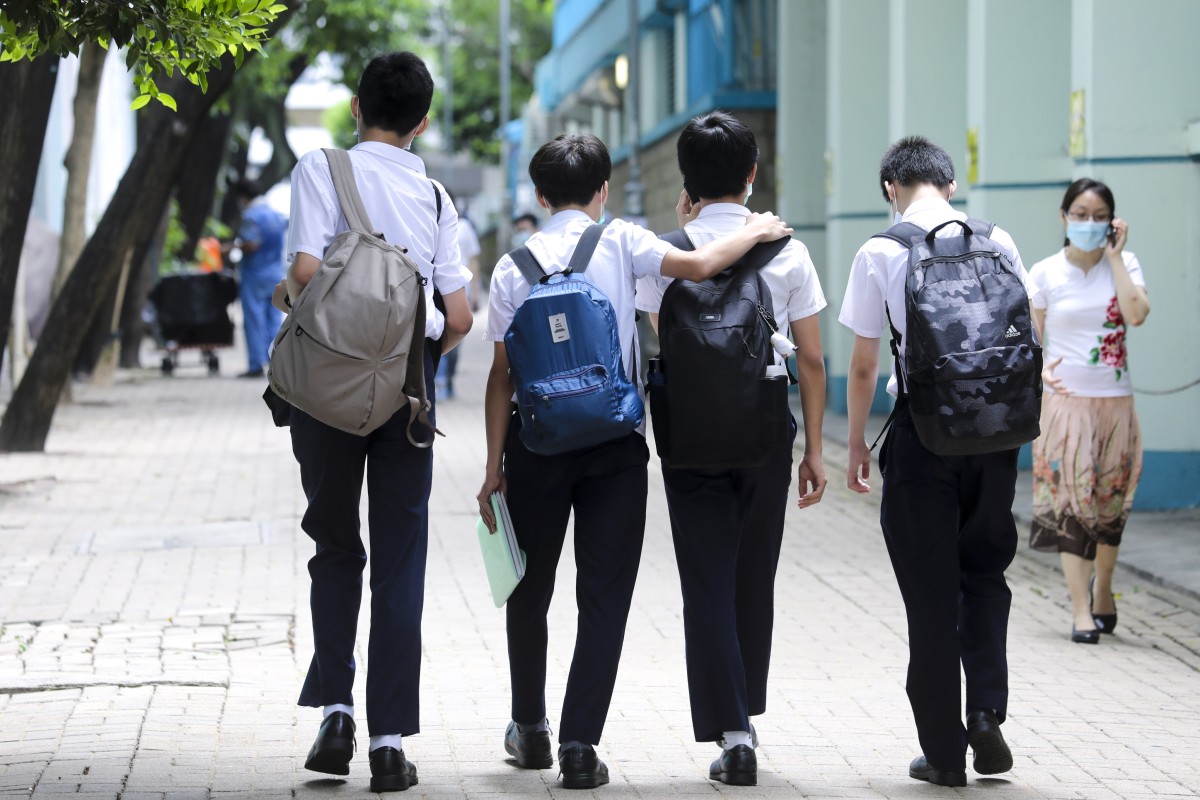 Hong Kong’s semi-private schools get green light for a 4.8 per cent average tuition hike. Photo: Dickson Lee
Hong Kong’s semi-private schools get green light for a 4.8 per cent average tuition hike. Photo: Dickson LeeHong Kong’s semi-private schools have been given the green light to increase tuition fees by about 4.8 per cent on average, the most in five years.
Fees on average will increase by 5.36 per cent at private schools and 4.53 per cent at international ones.
The Education Bureau on Wednesday said it had received applications to adjust tuition fees for the 2024-25 academic year from 191 schools as of the end of August. They comprise private and international schools as well as semi-private ones under the government’s direct subsidy scheme (DSS).
The applications came from 53 DSS institutions, 73 private schools and 65 international ones. Only one application from an international school was rejected, the bureau said.
Tuition fees of DSS schools would rise by 4.76 per cent on average for the new academic year, it said.
The bureau said it scrutinised applications from DSS schools based on their submitted budgets, the rationale behind the increase and whether they had consulted and explained their reasoning to parents.
It added that DSS schools were also required to set aside no less than 10 per cent of their total tuition revenue for fee reductions and scholarships to ensure that students’ studies were not affected by family financial problems.
Hong Kong educators call for new measures after Primary One classes cut
Last year, DSS schools won approval to increase fees by 4.09 per cent on average for 2023-24, while their private and international counterparts got the green light to raise them by 5.41 per cent and 4.5 per cent, respectively.
Dion Chen, principal of Ying Wa College, a DSS school in Cheung Sha Wan, said its fee would increase by 5.4 per cent, adding that its usual practice was to raise them every two years.
He said the major reason for the increase was the rise in operational costs, especially electricity bills.
Chen said students did not have to pay extra for many activities that were included in the annual fee.
“Contractors or service providers of these activities have increased their fees. We also need to adjust our annual fee. If not, it would be difficult to match the inflation or increase of such costs.”
Chen said the school had consulted parents on the increase, adding that he believed the parents would understand the latest arrangement.
“The annual fee after the rise is below the median of the overall vocational school fees,” he said, adding that the school also provided a series of scholarships to students.
Ngai Shan-ting, president of the Federation of Parent-Teacher Associations, Kowloon City district, said schools should notify parents in advance of any increase and be transparent about the reasons for it by providing a brief financial report.
She said the bureau should consider whether parents with heavy financial responsibilities would be able to afford the increased fees.
When applying for private or semi-private schools for their children, parents should also take into account their financial abilities, she added.
In a reply to the Post, the bureau said it would “critically consider” justifications offered by schools such as rent increases, staff salary adjustments, the hiring of additional teachers, the purchase of teaching materials and major repair works.
It would also take into account the schools’ financial position and their communication with parents and their response to parents’ concerns.
